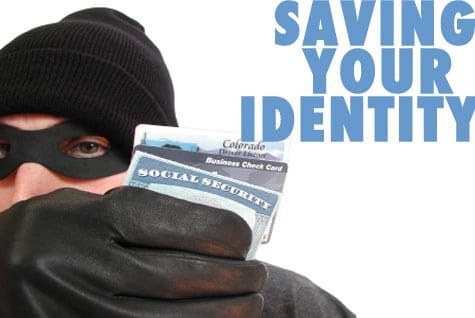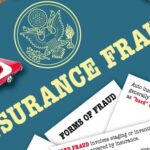<p><strong>Identity theft</strong> is on the increase. <em>Fraudsters</em> are continuously looking for ingenious ways to <em>steal your identity</em> and use this for fraudulent purposes. Sometimes without even realising, you might find yourself in circumstances and situations that put your <strong>identity at risk</strong>. Having someone else use your personal details, assume your identity, steal your money, and / or commit fraud in your name is not a position you want to find yourself in. Having your <a href="https://www.fraudswatch.com/identity-theft-how-to-prevent/"><strong>identity stolen</strong></a> can be both financially and emotionally devastating. Therefore, it is in your best interest to be protected and we have provided you with some simple steps you can take to help <em>save your identity</em>.</p>
<h2 id="1-social-networking-sites" class="rb-heading-index-0-27809">1. Social Networking Sites</h2>
<p>All too often people are just too willing to put all of their personal details onto Social Networking Sites such as Facebook, Twitter, MySpace etc. Often these sites are plastered with personal information such as a person&#8217;s date of birth, employment details, education history, contact numbers, email addresses etc. People also freely post up personal photos which can be easily copied. All of these very personal details recorded on your profile can be used by fraudsters who could build up enough information to pass themselves off as you and use your identity for criminal activities.</p>
<p>I have been amazed with <a href="https://www.facebook.com/">Facebook</a>. I set up a Facebook profile and contacted random people to ask if I could be their friend. Within a couple of weeks, I had amassed over 500 friends who have all let me into their personal profiles and whom freely invite me to parties and events. I have no idea who these people are, but most importantly, they have no idea who I am and what my intentions are from being a cyber friend of theirs. Luckily for them I am of good character with no untoward intentions.</p>
<h2 id="2-paperwork" class="rb-heading-index-1-27809">2. Paperwork</h2>
<p>All of us get inundated with paperwork and at some stage we need to do a cull and throw some of it away. This might be old bills, obsolete letters, receipts, employment contracts, rental agreements, <a class="wpil_keyword_link" href="https://www.fraudswatch.com/category/loans/" title="loan" data-wpil-keyword-link="linked" data-wpil-monitor-id="193">loan</a> contracts, bank statements etc. It is important that you are very careful how you dispose of your personal paperwork, as most of it will have sufficient information on it to allow someone to steal your identity.</p>
<p>Ensure you never throw anything into the bin unless it has been torn up in millions of tiny pieces. The best way to do this is to invest in a simple paper shredder. The shredding can then be thrown out or alternatively you could mulch or compost it.</p>
<h2 id="3-passwords-and-pin8217s" class="rb-heading-index-2-27809">3. Passwords and PIN&#8217;s</h2>
<p>These days we need passwords and PIN&#8217;s for all sorts of things and coming up with new and innovate ones can be quite difficult. You need to ensure you don&#8217;t use simple passwords and PIN&#8217;s that someone might be able to guess such as your date of birth, phone number, pets name, partners name, licence plate etc. Choose passwords that are a combination of letters and numbers and don&#8217;t use the same password / PIN for all purposes. You wouldn&#8217;t want your PIN to hire your videos to be the same as your internet banking password.</p>
<p>Never disclose your passwords and PIN&#8217;s to anyone, even your closest friend / relative / partner. Never ever under any circumstance provide passwords / PIN&#8217;s to callers on the phone or in reply to an email. A legitimate organisation would never call / email you and ask you for this sort of information. Remember to change your passwords and PIN&#8217;s regularly. Memorise them instead of writing them down. Don&#8217;t copy them onto paper and tuck this into your wallet / purse or leave in your top drawer. What happens if you lose your wallet / purse or someone breaks into your home?</p>
<h2 id="4-lock-your-mail-box" class="rb-heading-index-3-27809">4. Lock Your Mail Box</h2>
<p>Putting a lock on your mail box will stop people stealing your personal letters and obtaining your information or getting access to cheque books, credit cards etc which might be mailed out to you. If you are concerned about your mail being delivered to your home, consider getting a post office box.</p>
<h2 id="5-be-wary-of-the-phone" class="rb-heading-index-4-27809">5. Be Wary Of The Phone</h2>
<p>Anyone can pass themselves off as anyone else when using the telephone. Fraudsters can pretend to be employees from all sorts of organisations and try and obtain personal information from you. If you get a phone call from someone asking you lots of personal details, you can refuse to disclose this information.</p>
<p>If you are unsure of the true identity of the caller, tell them you will call them back. Source the phone number of the organisation yourself (never just call back on the number they give you) from the internet / yellow pages, and proceed with your conversation once you are comfortable with whom you are speaking.</p>
<h2 id="6-be-wary-of-surveys" class="rb-heading-index-5-27809">6. Be Wary Of Surveys</h2>
<p>There are all sorts of surveys on the market and lots of times these are set up to obtain personal details for marketing purposes. However, unless you know the organisation that is conducting the survey and are confident with disclosing information to them, err on the side of caution. Information such as where you bank, how much you earn, who lives in the house etc can be providing a criminal with a good picture of your situation. Usually these surveys have a prize / reward / competition for completion and this is where names, addresses, email address, contact numbers etc are usually given. Take care at all times.</p>
<p>Also be wary of those that come knocking at your door on the pretext of gathering information for a survey or to save you money. Do not give out any personal details to anyone, including phone company representatives, power representatives etc.</p>
<h2 id="7-bank-accounts" class="rb-heading-index-6-27809">7. Bank Accounts</h2>
<p>Always check your bank statements and ensure you report any suspicious / unknown transactions to your bank even if they are only small sums of money.</p>
<p>Your bank will never email / SMS you and ask for your account details, PIN&#8217;s etc. If you get any emails / SMS&#8217;s, even if they look genuine, never ever click on any links that ask for you to validate your bank account details. Don&#8217;t disclose your banking details to anyone. Fraudsters are in the business of defrauding and they can be very convincing. They can come up with all sorts of convincing stories that trick you into providing your banking details to them. Don&#8217;t fall prey to these criminals.Â</p>
<h2 id="8-internet-banking" class="rb-heading-index-7-27809">8. Internet Banking</h2>
<p>Be careful where you are when you log in to your bank&#8217;s websites. Never use your internet banking on a public computer / internet cafe as information might be readily stored on these computers or scammers might have installed a programme onto the computer that enables them to access your confidential information by recording keystrokes.</p>
<p>Always ensure you log out of your banking sites when you have finished with them. Never leave these sites open on your computer.</p>
<h2 id="9-valuable-personal-documents" class="rb-heading-index-8-27809">9. Valuable Personal Documents</h2>
<p>Always ensure you protect your valuable personal documents such as passports, driver&#8217;s licences, birth certificates, marriage certificates etc. Store them in a safe and secure place either at home or in a safe deposit box at your bank.</p>
<p>Your car is not a safe place to store your personal documents. If you are keeping valuable personal documents in your glove box, what are you going to do if your car is stolen?</p>
<h2 id="10-buying-goods-from-the-internet" class="rb-heading-index-9-27809">10. Buying Goods From The Internet</h2>
<p>Be wary of the sites you visit to buy goods from the internet. Ensure the sites you buy from are secure genuine sites. You can usually tell this by looking for a padlock at the lower section of your screen and ensuring the URL starts with https. You might like to consider having a credit card with a very low limit that you use for your internet / overseas purchases. This way you potentially protect your main credit card from the risk of fraud.</p>
<p>It could be wise to only buy from sites that transfer you to a bank website or organisation such as PayPal to collect the payment. This way you aren&#8217;t disclosing your banking information / credit card details directly to the website business.</p>

Identity Theft -10 Ways To Save Your Identity

Save Your Identity
FraudsWatch is а site reporting on fraud and scammers on internet, in financial services and personal. Providing a daily news service publishes articles contributed by experts; is widely reported in thе latest compliance requirements, and offers very broad coverage of thе latest online theft cases, pending investigations and threats of fraud.
Leave a Comment


The Ultimate Guide to Avoiding Online Scams
Stay safe online! Our comprehensive 2025 guide covers phishing, AI scams, investment fraud & more. Learn red flags, prevention steps & how to report scams. Protect yourself now via Fraudswatch.com.
Read More
Categories
- AOL Aim Live ATT
- Celebrities Scammed
- Credit Card
- Credit Scam
- Email Man-Male Scammers
- Email Scam List
- Email Scams Examples
- Fraud
- Fraud News From World
- Fraud Prevention
- Gmail.com
- Hotmail.com
- Insurance
- Jobsearch Scams
- Loans
- Military Scammer
- Mortgage
- Nigerian 419
- Report Fraud
- Romance Scammer
- Russian Email Scam
- Scammer
- Scams Ways
- Shopping & Saving Money
- Spam
- White-Collar Crime
- Yahoo.com
Recent Posts
- The Unseen Battlefield: Your Definitive 2025 Guide to Advanced Scam Detection July 9, 2025
- Bulletproof Betrayal: Inside the $5.2 Million ShotStop Fraud That Sold Counterfeit Body Armor to America’s Law Enforcement July 8, 2025
- The Weapon of Experience: Inside the $28M Memphis Pharmacy Fraud and a Prior Conviction at the Heart of a Record-Breaking National Takedown July 2, 2025
- Chicago Businessman Convicted in $55 Million Fraud Scheme Targeting COVID-19 Relief Funds and Financial Institutions July 2, 2025
- Betrayal in the Classroom: An In-Depth Analysis of the Unprecedented Criminal Charges Against the School District of Philadelphia for Asbestos Failures June 28, 2025
Tags
Bank Fraud
Banking Fraud
Bankruptcy Fraud
Bribery Scheme
Business Fraud
Celebrities Scammed
Charity Fraud
Commodities Fraud
Consumer Fraud
Consumer Protection
COVID-19 relief fraud
Credit
Credit card
Credit Card Fraud
Credit Repair
Credit Repair Scams
Crime
Cyber Crime
Cybercrime
Cyber Criminals
Cybersecurity
data breach
Dating Scammer
Elder Fraud
Elder Justice
Email
Email Letter
Email Scam
Email Scam Examamples
Email Scam Example
Email Scam Examples
Email Scams
Email Scams Examples
False Claims Act
FBI
Fedex
Financial Crime
Financial Fraud
Fraud
fraud prevention
Fraud Scheme
Health
Health and Wellness Scams
Health Care Fraud
Healthcare Fraud
Identity Theft
Immigration Fraud
Insurance
Insurance Fraud
Internet Fraud
Investment Fraud
job
Job Scam
job scams
Loan
Loan Fraud
Loan Scam
Loans Fraud
Lottery Scam
Mail Fraud
Medicare Fraud
Microsoft
Military Scammer
Military Scammer LT. JEFFREY MILLER
Military Scammers
Money Laundering
Money Laundering Scheme
Mortgage
Mortgage Fraud
Mortgage Scam
Mortgage Scams
National Security
Nigerian
Nigerian 419
Nigerian Scam
online fraud
Online Scams
PayPal
personal information
Phishing
Phishing Scams
Ponzi Scheme
Public Corruption
Ransomware
Report Fraud
Romance Scam
Romance Scammer
Romance Scammers
Romance Scams
Scam
Scammer
Scammers
scams
Securities Fraud
spam
Tax Evasion
Tax Fraud
Travel Scams
White Collar Crimes
wire fraud



